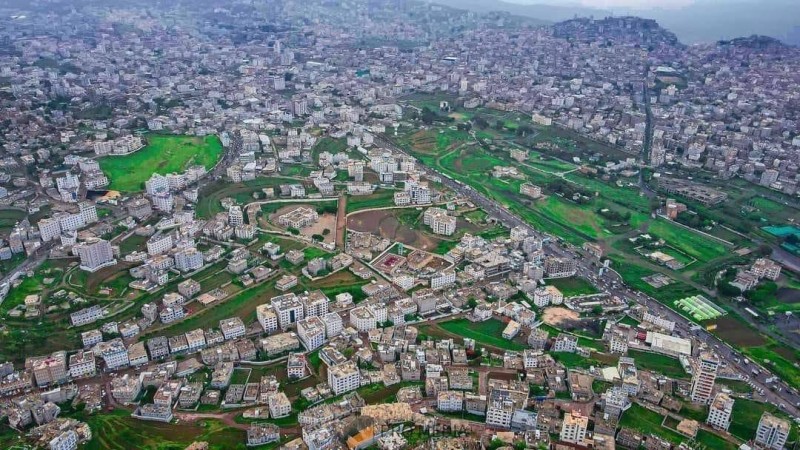Coffee and coffeehouses among the Ottomans


The story of coffee drinking is a curious matter. The beverage can be dated to around 800 B.C. Homer and Arabian legends refer to it and the Persian mathematician and physician Avicenna used it as medicine in 11th century A.D., according to one source. Over the centuries, several apocryphal legends have attached themselves, such as one about the goat herder in Ethiopia and others about coffee’s discovery by monks or possibly by Sufis. These later stories agree though that coffee came from Ethiopia and reached Yemen as early as 1400, and probably much earlier, before spreading through the Middle East and along the North African coast.
The rapid spread of coffee drinking has been attributed initially to the Sufis, a mystic interpretation of Islam, who drank coffee because of their long and often rigorous ceremonies. It made them stronger and more awake. These sects gained adherents who came from many different walks of life, spreading across political and cultural boundaries and breaking down social barriers. Ebu’l Hassan Şazeli, the founder of the mystic Şazeli sect, reportedly first discovered coffee on a trip to Mecca in 1258 and spread the pleasure of coffee drinking from there. He became the “patron saint” of coffeehouses.
The Greeks claim that a Greek opened the first coffeehouse in Constantinople in 1475 at a place called Kiva Han, possibly in today’s Tahtakale district, although Turkish sources suggest coffee was only brought to the city in 1517 after Sultan Selim I (r. 1512-1520) conquered Egypt. Yet another story relates how the Ottoman governor of Yemen, Özdemir Paşa, had learned to love coffee while there and brought coffee beans with him when he was called to Constantinople where he introduced coffee drinking to Kanuni Sultan Süleyman (r. 1520-1566). It’s probable that Özdemir Paşa already knew about coffee drinking before he was in Yemen because he was originally from Cairo and later conquered Sudan and Ethiopia. It’s reported that the sultan had many enjoyable conversations with Özdemir – possibly over a good cup of coffee. Undoubtedly the two talked about the situation regarding the Red Sea, India and the Portuguese, who were actively trading in that area. The palace eventually acquired a Chief Coffee Maker who was responsible for the sultan’s coffee and the utensils needed to make it.
A dispute broke out in Constantinople, as it had earlier in Cairo, about drinking coffee. Purist Muslims wanted it banned because of its stimulating nature and because it was an innovation. The chief religious authority among the Ottomans during the reign of Süleyman and his successor, Şeyhülislam Ebussuud issued a fatwa, or decree, against drinking coffee. The year was 1543, according to Refik Ahmet Sevengil, and ships had arrived bearing cargo of coffee beans. As a result of the fatwa, the bags of beans were dumped in the sea. Over the years, however, the prohibition was mostly ignored and the first coffeehouse opened in Istanbul in 1555, according to Ottoman sources. And when Bostanzade Mehmed Efendi became şeyhülislam toward the end of the 16th century, he issued another fatwa, in poetic form no less, indicating that suspicions about coffee were groundless.
In the 17th century, the coffeehouses were again closed, this time by Sultan Murat IV [r. 1623-1640]. French orientalist and archaeologist Antoine Galland, who spent many years in the second half of the 17th century traveling in the Middle East, published information about the Middle East and kept a kind of diary. He later on described the situation as, “The number of coffee-houses increasing prodigiously in Constantinople and their attractions also with the habit of frequenting them, it was soon found that the imams and expounders of the law were left to keep company with their beards, the mosques remaining nearly empty to answer in learned echoes to the declamations of the doctors. Though rigid predestinarians, it was not to be expected that these Musulman [Muslim] parsons would come readily into the notion that Providence had decreed they should preach to empty benches; on the contrary, seeing the mortifying success of their rival jugglers of the coffee-houses, they instinctively thought, as their craft always do, of the strong arm of power, and vehemently invoked its aid against the Arabian berry.” (From “On the Introduction of Coffee into Europe”, The Oriental Herald, 1827)
The 17th century Ottoman chronicler Ibrahim Peçevi wrote about the coffeehouses, “These shops became the meeting places of a circle of pleasure seekers and idlers, and also of the wits from among the men of letters and literati, and they used to meet in groups of about 20 or 30. Some read books and fine writings, some were busy with backgammon and chess; some brought new poems and talked of literature.” (Translated in Istanbul and the Civilization of the Ottoman Empire by Bernard Lewis) One can presume that these kinds of conversations took place in private homes as well, since it is very doubtful that top officials and the wealthy would be found in them.
Galland described an incognito visit that the Grand Vizier Köprülü made to the principal coffeehouses in order to understand what was being said. (Galland does not specify that it was Köprülü Mehmed Paşa, but he refers to this event as happening before the war in Candia [1648 to 1669]; in short, he related the information as an anecdote from someone else.) There “to his great dismay, ‘he heard grave people discoursing seriously on the affairs of the empire, blaming the ministry, and deciding matters of the utmost importance. He likewise went into the taverns, where he saw people singing, or talking only of their amours or exploits in battle, being for the most part soldiers, whom he did not think it convenient to deprive of this amusement.’” But he had the coffeehouses closed for a time.
In the end, there was no way the Ottoman authorities could completely close the coffeehouses any more than they could shut down taverns or forbid tobacco. These shops merely moved to backstreets and blind alleys. The licensing fees and the taxes on the products were important sources of revenue for the government, just as they are today.
Hurriyet Daily News

Aden -- Human Rights Watch (HRW) has issued a new report documenting a wave of arbitrary detentions carried out by Houthi authorities in Yemen in r…

Sana'a -- The Yemeni Network for Rights and Freedoms has revealed alarming figures documenting 1,654 violations committed by the Zainabiyat, the al…

Ibb — A tragic incident has shaken the city of Ibb after the death of a young boy, Laith Mohammed Abdu, inside Al-Thawra General Hospital, wh…